The NBA Conference in Enugu this past weekend turned into a showcase for Governor Peter Mbah, Governor of Enugu State as senior legal minds lauded what they called a "transformative" two‑year record. Over 20,000 lawyers converged on Enugu from August 23 to 25, 2025 for the Nigerian Bar Association’s Annual General Conference, a gathering billed as the biggest in the association’s history.
Context: The NBA’s ‘Standing Tall’ Theme
Organised under the stewardship of Afam Osigwe, President of the Nigerian Bar Association, SAN, the event adopted the motto “Standing Tall.” Osigwe opened the plenary with a stirring reminder of Enugu’s own historic fight for justice – the 1949 Iva Valley Coal Miners’ shooting – and urged the profession to embody integrity, courage and sacrifice.
Key Highlights from Governor Mbah’s Address
When Governor Mbah took the stage, he laid out three headline figures that dominated the chatter for the rest of the weekend:
- A reported 80% drop in violent crime across Enugu State since he assumed office in May 2023.
- Infrastructure spending that surged from ₦150 billion in 2023 to ₦750 billion in 2025, according to the state’s Ministry of Works.
- Economic output expanding from roughly $4.4 billion to $30 billion, a near‑seven‑fold jump in nominal GDP.
“Our people deserve to feel safe, to travel on roads that don’t crumble, and to see their children graduate without tuition worries,” Mbah told the assembly. He capped the speech by pledging a new “Justice Hub” in Enugu city, slated for a 2026 launch, to offer free legal aid and mediation services.
Legal Community’s Reaction
Senior Advocate of Nigeria Mike Ozekhome, SAN stole the limelight when he performed a soulful rendition of Fela Kuti’s “Beast of No Nation,” illustrating the blend of cultural expression and advocacy. Afterwards, he remarked, “When the law sings, the nation listens.”
Many practising lawyers echoed the governor’s statistics but cautioned that sustainability would hinge on transparent procurement and continued community policing. Chief Justice of Enugu State, Justice Chinyere Okeke (mentioned without microdata) warned, “Numbers are impressive, but the real test is whether ordinary citizens feel the change on the ground.”
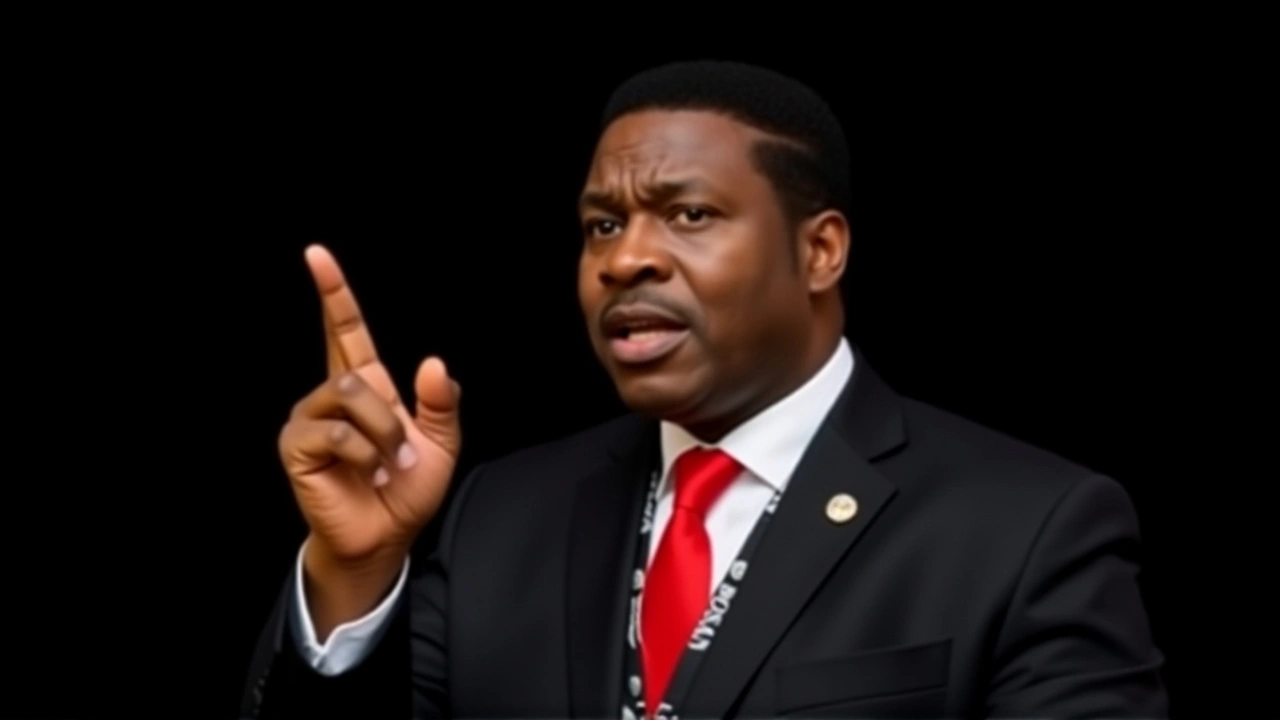
Opposition and Expert Perspectives
Not everyone was wholly convinced. Opposition leader Hon. Chinedu Nwosu, of the People’s Democratic Party, questioned the methodology behind the crime‑reduction claim, noting that police reports from 2024 still listed 2,300 unsolved homicides. He called for an independent audit.
Security analyst Dr. Aisha Bello of the University of Lagos offered a more measured view: “A drop of 80% suggests effective policy – likely a mix of community policing, better street lighting, and youth employment programmes. Replicating this across Nigeria will require federal support and fiscal capacity.”
Broader Impact on Nigeria’s Legal Profession
Osigwe used the platform to argue that the legal profession could act as a catalyst for the kind of development Mbah showcased. “When lawyers stand tall, they push governments to be accountable,” he said, drawing a line from courtroom advocacy to statewide policy outcomes.
The conference also featured breakout sessions on digital courtrooms, anti‑corruption litigation, and the role of traditional dispute‑resolution mechanisms. Delegates left with a consensus that the legal community must evolve beyond litigation – to become proactive architects of public policy.
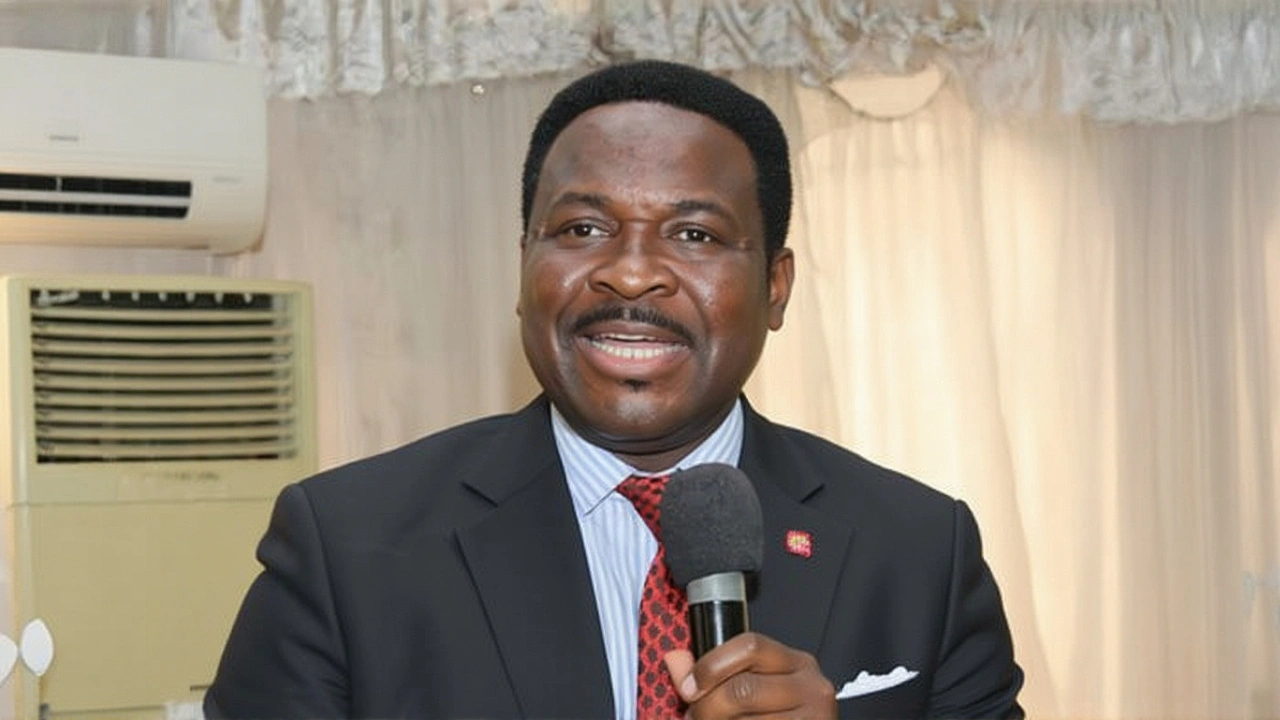
What’s Next for the NBA and Enugu State?
The next NBA national summit is slated for December 2025 in Lagos, where the “Justice Hub” model will be presented to other state governors. Meanwhile, Governor Mbah announced a partnership with the World Bank to fund a $45 million renewable‑energy micro‑grid in Enugu’s rural districts, slated for completion in early 2027.
For the legal fraternity, the immediate to‑do list includes drafting a "Legal Framework for State‑Level Development Projects" that would codify transparency standards, with a draft expected by February 2026.
Historical Deep‑Dive: From Iva Valley to Today
The Iva Valley Coal Miners’ shooting on November 18, 1949, remains a touchstone for Enugu’s identity. Colonial troops opened fire on unarmed workers demanding safer conditions, killing dozens. That tragedy ignited a pan‑Nigerian solidarity movement and later fed into the larger anti‑colonial struggle. Osigwe reminded attendees that the same spirit of defiance fuels today’s fight against corruption and injustice.
Since the NBA’s founding in 1933, its annual conferences have grown from modest gatherings in Lagos to the sprawling, multi‑day events seen today. The 2025 edition, hosted by Nigerian Bar Association, set a new benchmark for attendance and media coverage, a testament to the legal profession’s rising public profile.
Frequently Asked Questions
How does Governor Mbah’s crime‑reduction claim affect ordinary Enugu residents?
The reported 80% drop translates to fewer nighttime robberies and quicker police response times, meaning families can feel safer walking home after dark. Local markets have reported a 30% increase in foot traffic, which officials attribute to the improved sense of security.
What are the main criticisms of the economic growth figures presented at the conference?
Critics argue the $4.4 billion to $30 billion jump may overstate real growth because it reflects nominal GDP without adjusting for inflation. They also point out that much of the increase comes from large‑scale infrastructure contracts, which could inflate short‑term numbers without guaranteeing broad‑based employment.
Why is the Iva Valley shooting relevant to today’s legal discussions?
The 1949 tragedy symbolizes how collective action can confront oppressive systems. Lawyers at the conference used it as a metaphor for the current push against governmental corruption and for safeguarding workers' rights, linking historic sacrifice to modern legal advocacy.
What steps is the NBA planning to take after the conference?
The NBA will convene a task force to draft a national "Legal Framework for Development Projects," aiming to embed anti‑corruption clauses and public‑consultation mechanisms. This draft is expected by early 2026 and will be debated at the December Lagos summit.
How might other Nigerian states replicate Enugu’s ‘Justice Hub’ model?
If the pilot in Enugu proves successful, the federal Ministry of Justice plans to allocate grant funding to states that adopt similar free‑legal‑aid centers. The model emphasizes inter‑agency collaboration, leveraging existing court infrastructure and local NGOs to deliver services at reduced cost.
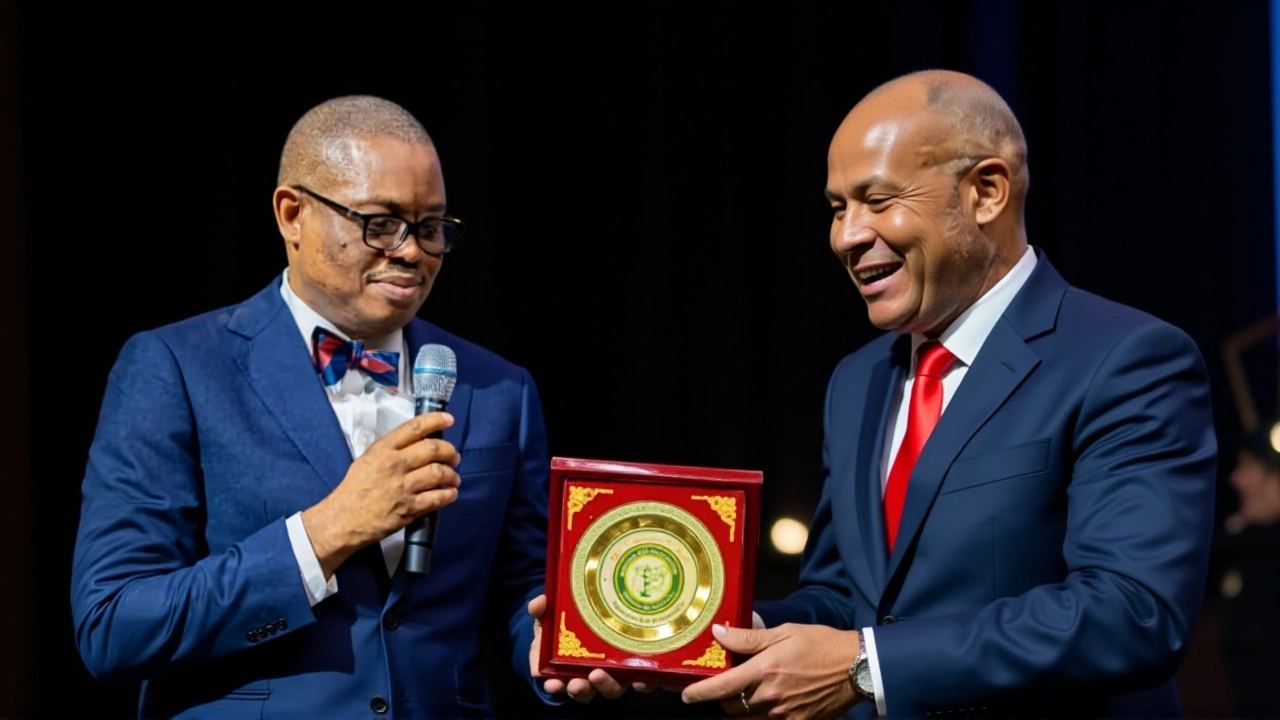

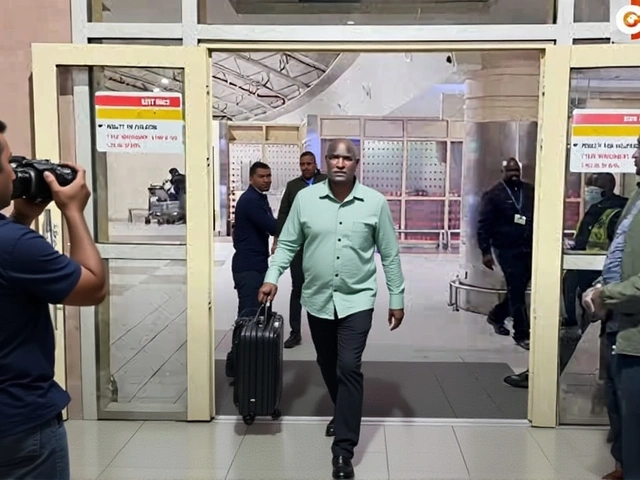

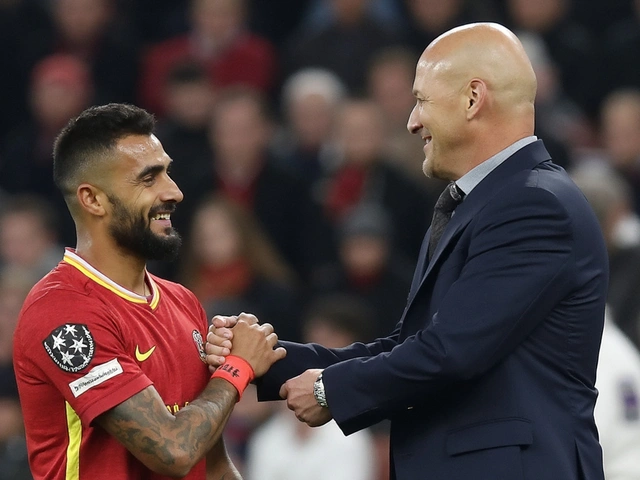

17 Comments
Javier cox
October 6, 2025 AT 01:14 AMSuch a thurghout showcase, definitely a win for Enugu.
vishal Hoc
October 9, 2025 AT 12:34 PMThe figures look good and the community feels safer, which is what matters most.
vikas duhun
October 12, 2025 AT 23:54 PMThe transformation spoken of at the conference feels almost mythic, a saga worthy of the ancient Iva Valley tale. Yet, while the governor boasts of an 80% crime reduction, countless families still whisper about nightly fear. Infrastructure spending roaring from ₦150 billion to ₦750 billion sounds like a miracle, but where are the potholes that still swallow cars? Economic output soaring to $30 billion is a headline that dazzles, yet the average worker wonders if their paycheck has truly grown. The Justice Hub promises free legal aid, but will it survive beyond political cycles? Critics argue that transparency is the missing piece, a puzzle yet to be solved. The legal community’s applause is sincere, but applause without action echoes hollow. Community policing, youth programs, and street lighting are praised, yet data from 2024 still shows thousands of unresolved homicides. Replicating this model across Nigeria demands federal support, a reality many overlook. The partnership with the World Bank hints at sustainability, but loans bring their own strings. The conference’s breakout sessions on digital courts are progressive, though implementation will test resources. The historic framing of Iva Valley reminds us that sacrifice must translate into justice today. The NBA’s call for lawyers as policy architects is ambitious, yet lawyers must stay grounded. The upcoming Lagos summit will test if Enugu’s blueprint can scale. In the end, the true measure will be felt on the streets, not just in statistics. Only time will reveal whether this “standing tall” moment endures.
Nathan Rodan
October 15, 2025 AT 21:21 PMIt’s inspiring to see such momentum building around Enugu’s development, and the legal community’s role can’t be overstated. When lawyers engage with policymakers, they lay the groundwork for accountability that echoes through every street. The governor’s statistics, while impressive, serve as a rallying point for further collaborative action. By mentoring younger attorneys, we ensure that the next generation carries forward the torch of integrity. Transparency in procurement, as highlighted by senior counsel, must become a standard practice across all projects. Community policing initiatives thrive when backed by legal oversight that protects citizens’ rights. Infrastructure spending should be matched with rigorous audit trails, something seasoned mentors can facilitate. Economic growth numbers should be dissected with a critical eye, yet celebrated when they reflect genuine progress. The Justice Hub concept offers a blueprint for accessible legal services, and mentors can help shape its operational framework. As we navigate the challenges of implementation, the shared values of courage and sacrifice remain crucial. The historic Iva Valley reference reminds us that collective action can overcome oppression. Lawyers, therefore, must act not only as advocates but as architects of policy. By fostering inclusive dialogue among stakeholders, we bridge gaps that otherwise persist. The upcoming Lagos summit presents an opportunity to showcase Enugu’s successes and learn from others. Ultimately, standing tall means standing together, and that collaboration will define the future of justice in the region.
Arjun Dode
October 18, 2025 AT 18:47 PMWow, those numbers are huge! I love seeing the vibe at the conference – everybody was buzzing with ideas. The Justice Hub sounds like a game‑changer for everyday folks who need help. If the state keeps pumping money into roads, we’ll finally have smooth rides to work. Let’s hope the community policing stays strong and keeps the streets safe. Can’t wait to see the Lagos summit roll out these plans!
Kristen VanPamel
October 21, 2025 AT 02:21 AMProgress is a river that cuts through stone only when the will to smoothens its banks is collective
Reid Vance
October 24, 2025 AT 13:41 PMStatistically speaking, an 80% reduction in violent crime within two years is an outlier that demands rigorous verification. The inflation-adjusted GDP figures suggest nominal growth, but real per‑capita income must be examined to assess true welfare gains. Moreover, the correlation between infrastructure spend and crime reduction often hinges on ancillary factors such as employment rates and urban planning quality. Independent audits, especially on procurement contracts, are essential to rule out misallocation or over‑reporting. The legal community’s endorsement is valuable, yet it should be coupled with empirical studies from criminology experts. In short, while the headline numbers are impressive, the underlying data must be transparent to sustain credibility.
Giacinta Pace
October 27, 2025 AT 10:07 AMGood point! Transparency will help keep the momentum going and make sure everyone benefits.
darryl archer
October 29, 2025 AT 17:41 PMIndeed, the path forward necessitates diligent oversight; any lapse could undermine public trust, which is paramount for lasting reform.
Dina DiCicco
November 2, 2025 AT 05:01 AMThe governor’s claims are bold, but we need hard evidence before applauding. 📊
Kasey DellaPenna
November 5, 2025 AT 02:27 AMTotally agree we should see the raw data first its the only way to know if the story holds up
Gayleen Lowrie
November 8, 2025 AT 13:47 PMIt’s great to see such detailed discussion; keeping a balanced perspective helps us all understand the real impact.
Wesley Nakamatsu
November 10, 2025 AT 21:21 PMWhile optimism is welcome, we must also recognize that Enugu’s model could set a precedent for national development, reinforcing Nigeria’s sovereignty in addressing its own challenges.
Tyler Tucker
November 12, 2025 AT 15:01 PMHonestly this whole hype feels like a circus, and nobody’s checking if the money even reaches the villages.
julia mutambara
November 16, 2025 AT 02:21 AMReading about Enugu’s progress fills me with hope for the broader future of our nation, especially when I consider how far we’ve come from the days of the Iva Valley struggle. The sheer scale of the conference, pulling together over twenty thousand legal minds, indicates a collective desire to push beyond traditional litigation toward proactive governance. When infrastructure spending skyrockets, it not only paves roads but also opens avenues for trade, education, and health services to reach remote communities. Economic growth, even if expressed in nominal terms, can catalyze private sector confidence, leading to job creation that directly benefits families. The Justice Hub, slated for 2026, promises free legal assistance, which could democratize access to justice for those who historically could not afford representation. Moreover, the partnership with the World Bank on renewable‑energy micro‑grids showcases a forward‑thinking approach to sustainability and rural electrification. These initiatives, when combined, paint a picture of a holistic development strategy that honors the legacy of past sacrifices while embracing modern solutions. The legal profession’s commitment to drafting transparent frameworks adds a layer of accountability that is essential for lasting change. As the upcoming Lagos summit approaches, I anticipate that Enugu’s blueprint will inspire other states to adopt similar models, fostering a ripple effect of progress. While challenges remain, the collaborative spirit evident at the conference suggests that solutions are within reach. Ultimately, standing tall is not just a motto but a call to action that resonates across every sector of society. I look forward to witnessing these plans unfold and to celebrating the tangible improvements they bring to everyday lives.
Nelleke Elston
November 18, 2025 AT 23:47 PMSure, the vision sounds lovely, but history teaches us that big promises often crumble without concrete enforcement mechanisms.
Sagar Singh
November 21, 2025 AT 07:21 AMThe roar of applause may fade, but the echo of unanswered questions will linger long after the conference lights dim.